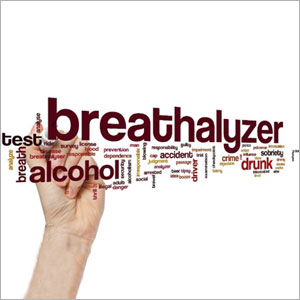 In this article, you can discover:
In this article, you can discover:
- The role and admissibility of roadside and evidential breathalyzers in DUI cases.
- Legal consequences and implications of refusing a breathalyzer test.
- Critical information needed from the initial DUI stop investigation.
Are Roadside Breathalyzer Tests Required And Admissible In Court?
A roadside breathalyzer, often found in mobile units, aims to provide on-the-spot breath alcohol measurements during traffic stops. This approach is rooted in the belief that immediate testing yields more accurate results compared to waiting. In some scenarios, individuals might have stopped drinking hours before being pulled over for law enforcement suspecting them of driving under the influence.
Waiting too long to administer a breath test at a testing facility can result in a lower recorded blood alcohol or breath alcohol level, potentially falling below the legal limit of 0.08 due to the fact that the body is metabolizing the alcohol as time passes. Conversely, for those engaged in binge drinking, their alcohol levels may continue to rise after the initial traffic stop, rendering their eventual test results higher.
However, mobile breathalyzers have faced scrutiny in certain jurisdictions, such as Central Florida, due to concerns about their reliability. These devices are often subjected to challenging conditions inside police vehicles, including constant jolting and extreme temperatures exceeding 120 degrees Fahrenheit, raising questions about their accuracy.
Recently, many areas have shifted towards using more stable, permanently installed breathalyzer machines at testing facilities to reduce reliance on mobile units.
What Information From The Initial Stop Investigation May Be Critical For Someone Charged With DUI?
When obtaining a driver’s license in Florida, individuals implicitly consent to chemical tests, like breathalyzers, to determine their sobriety. This implied consent is detailed in fine print on the bottom of your license. However, it’s crucial to understand that law enforcement cannot forcibly administer such tests; individuals have the right to refuse.
Nonetheless, refusing a request to produce a breathalyzer sample carries consequences. For a first-time DUI offense, there is typically a six-month administrative license suspension. If an individual refuses the breathalyzer, this suspension period doubles to 12 months. Subsequent DUIs result in even longer suspensions, and a second refusal may lead to a separate misdemeanor charge.
Moreover, refusing a breathalyzer can be used against the defendant in court, with the prosecution arguing “consciousness of guilt.” This argument suggests that the defendant refused the test because they knew it would incriminate them, potentially swaying the jury.
For more information on Breathalyzer Tests In A Florida DUI Case, a free initial consultation is your next best step. Get the information and legal answers you are seeking by calling (407) 890-8472 today.
